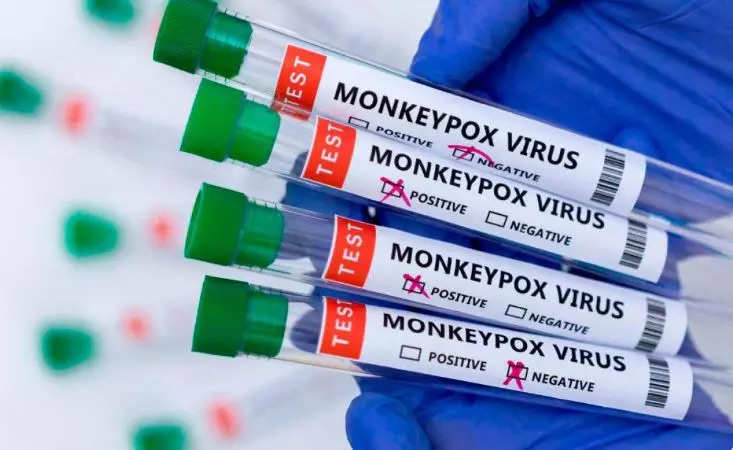New Delhi: Gym-goers and fitness freaks chasing protein pills may need to tread with care, with their potential for serious organ damage prompting the Centre to caution the public about them.
New Delhi: Gym-goers and fitness freaks chasing protein pills may need to tread with care, with their potential for serious organ damage prompting the Centre to caution the public about them.
The Directorate General of Health Services (DGHS) under the health ministry will shortly issue an advisory on protein supplements after multiple instances of kidney and cardiac problems in many people who consume them to build a muscular body, an official aware of the matter said.
Premium benefits
35+ Premium articles every day
Specially curated Newsletters every day
Access to 15+ Print edition articles every day
Subscriber only webinar by specialist journalists
E Paper, Archives, select The Wall Street Journal & The Economist articles
Access to Subscriber only specials : Infographics I Podcasts
Unlock 35+ well researched
premium articles every day
Access to global insights with
100+ exclusive articles from
international publications
5+ subscriber only newsletters
specially curated by the experts
Free access to e-paper and
WhatsApp updates
The Directorate General of Health Services (DGHS) under the health ministry will shortly issue an advisory on protein supplements after multiple instances of kidney and cardiac problems in many people who consume them to build a muscular body, an official aware of the matter said.
“Youngsters and gym trainers are consuming these protein supplements without any guidance. This may lead to many health complications such as kidney ailments,” the official cited above said on the condition of anonymity. “Basically, people are not aware how to use these products. So, this general advisory urging them to avoid using protein supplements is very important in view of their misuse,” the official added.
Protein supplements come under the nutraceuticals regulations of the Food Safety and Standards Authority of India (FSSAI), which also sets specifications for such foods meant for sportspersons. India’s protein supplement market was at around $1.4 billion in 2024, and is expected to reach $1.88 billion by 2029, according to Modor Intelligence, a market intelligence and advisory firm.
Queries sent to a health ministry spokesperson remained unanswered.
Industry executives said consumers should choose supplements with minimal additives and preservatives, and that it is best to prioritize obtaining protein from whole food sources such as lean meats, fish, eggs, dairy, beans and nuts.
Suyash Bhandari, nutritionist at iThrive Essentials, a health food maker, said, “First, the person who is taking protein supplements should know what quantity he should take, depending on his body weight. Eighty percent of protein should come from dietary intake or from the correct source of food. Many people don’t know about lifestyle changes and directly opt for supplements, and they face skin problems, bloating, acne and lactose intolerance because of misuse and overuse of protein supplements.”
Consumers should know ingredients of the products they consume, said Yuvraj Datta, director of manufacturing & process excellence at Zeon Lifesciences Ltd, a nutraceuticals maker, adding his company follows all compliance requirements. “A person should ideally take 25-50 grams of protein per day including dietary intake and through supplements. Excessive use can cause damage to the body. These supplements should be taken on the advice of a doctor or nutritionist based on age and weight. A genuine product has a barcode on packaging, which can be scanned to learn about the product,” he added.
Special Check-up Drive
Last year, the FSSAI ordered food commissioners across states and union territories to conduct a special drive to check nutraceuticals and health supplements for quality and safety throughout their manufacturing and sale process.
Doctors say that supplements should complement a balanced diet, not replace it.
Excessive use of protein supplements can be harmful, said Dr. Wasiyeeullah Shaikh, consultant nephrologist at Holy Family Hospital, Bandra, Mumbai. “High protein intake can strain kidneys, especially in individuals with pre-existing kidney conditions, potentially leading to kidney damage or failure over time. The over-consumption of protein supplements can overload the liver, affecting its ability to function properly and leading to liver disorders. Excessive protein can cause digestive issues such as bloating, constipation, diarrhoea and discomfort due to the body’s difficulty in processing large amounts of protein,” he said.
Dr Shaikh said protein supplements should be taken under the supervision of a doctor or a registered dietitian. A healthcare professional can assess individual needs based on factors like age, weight, fitness goals and overall health. They can also monitor potential side effects and adjust dosage to ensure their safe and effective use, he added.
“Recently, we had a case where the patient, a young gym trainer who was taking these excessive supplements, suffered acute kidney injury. After weaning him off these supplements and health proteins, we could reverse the kidney failure,” said Dr Shaikh.
Dr. Anurag Gupta, senior nephrologist at New Delhi’s Sir Ganga Ram Hospital said the ICMR guidelines clearly emphasize the importance of consulting a doctor before starting any supplement regimen. The choice of supplements should be decided by factors such as age, gender, body weight and the level of physical activity. Also, medical conditions can influence an individual’s protein needs.
Consuming pre work-out agents may lead to increases in blood pressure and cardiac demand, potentially leading to complications such as haemorrhagic stroke and sudden death, Dr Gupta said.









